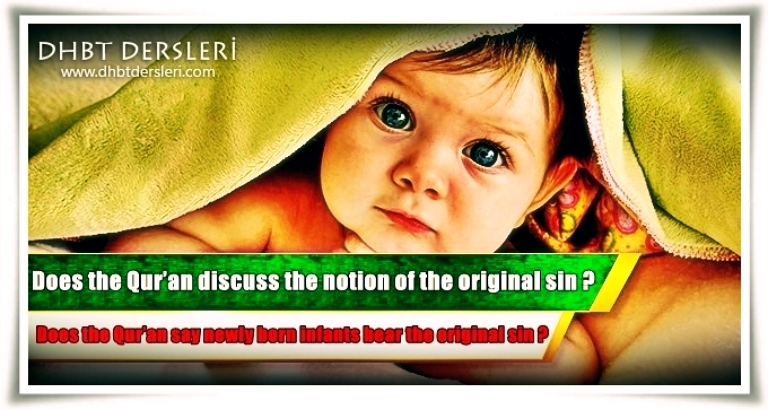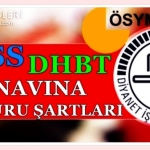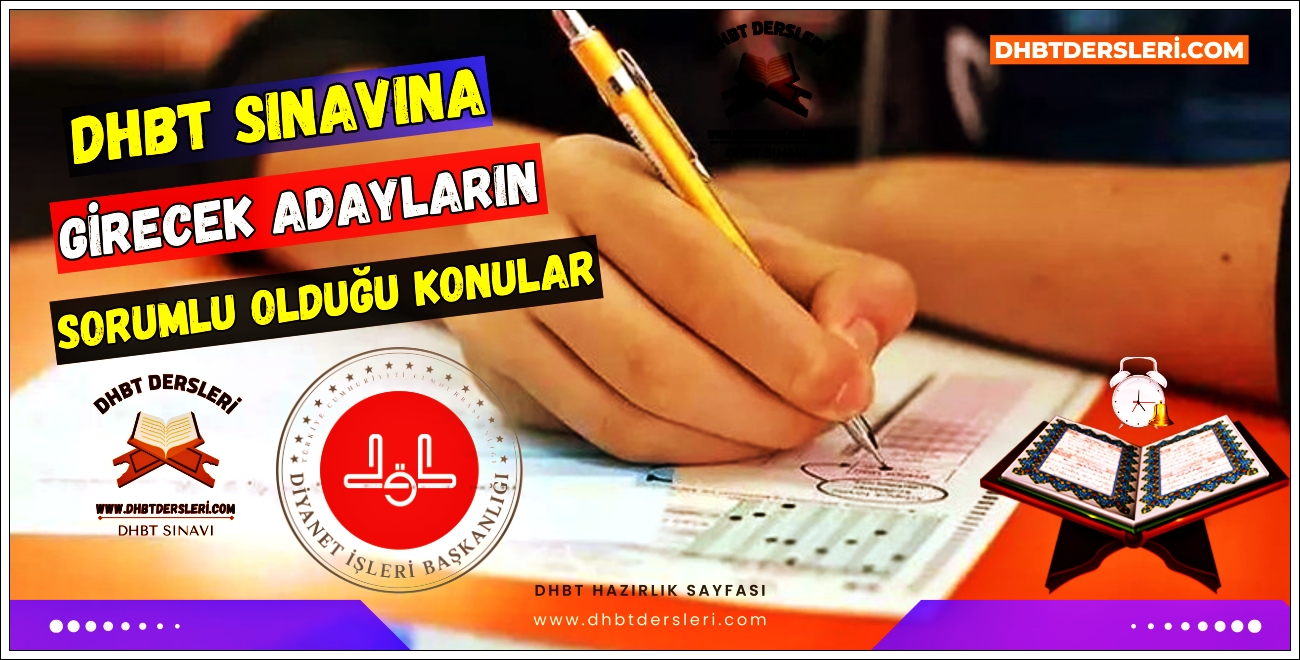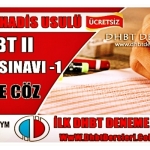Does The Qur’an Discuss The Notion of The Original Sin?
It does not. The Qur’an says humans are created in pure fitrah (natural disposition) (Rum 30:30). Commenting on this âyah, Prophet Muhammad says, “Each newborn is born in the Islamic fitrah” (reported by al-Bukhari and al-Muslim). The “original sin” concept diametrically contradicts the “individual responsibility” principle, which is one of the unalterable and unchangeable laws of moral behavior.
In reality, Satan committed the first sin, not Adam: Satan revolted against Allah’s command to prostrate before Adam well ahead of Adam’s sin of eating from the forbidden tree.
Therefore, if one were to speak of the first sin, then it was Satan who committed it, not Adam. The erroneous doctrine of the original sin, attributed to humans, later caused numerous rifts among humans.
Does The Qur’an Say Newly Born İnfants Bear The Original Sin?
According to the Qur’an, no child is responsible for his/her father’s sins. Humans are born innocent. Further, the Qur’an explicitly informs that every single human being is solely responsible for his/her own sins: “And no bearer of burdens shall be made to bear another’s burden; and if one weighed down by his load calls upon [another] to help him carry it, nothing thereof may be carried [by that other], even if it be one’s near of kin” (Fatir 35:18).
The Qur’an speaks about great Prophet Abraham’s father, who made idols with his own hands and was an idol worshipper (‘An`am 6:74) and about Prophet Noah’s son who died as an denier of truth, insisting on his rejection of monotheism (Hud 11:42-47). Such historical anecdotes speak to the fact that each person is solely responsible for his/her actions and deeds.
What is The Purpose of Humans Birth and Death ?
The Qur’an offers the following answer to this question: “He who has created death as well as life, so that He might put you to a test [and thus show] which of you is best in conduct, and [make you realize that] He alone is almighty, truly forgiving.” (Mulk 67:2)
What is “Fitrah” (The Natural Human Disposition) ?
The term “fitrah” denotes “the natural disposition of a human.” The fitrah of something is its natural properties and peculiarities acquired at creation. By referring to “the natural disposition, which Allah instilled into man” (Rum 30:30), the Qur’an argues that humans are inherently good beings. In a different sense, fitrah means something placed beforehand, which we find upon removing its cover.
Thus, fitrah is precisely what Allah placed in humans— “divine software.” Whenever fitrah is the topic of a conversation, that congregation inevitably speaks of the Creator and His active and actual intervention in fitrah-bearing creations’ lives.
Fitrah is one of the keys to understanding the “evil problem” (theodicy). The concept that “Everything is fitrah-laden” subsequently brings about the concept of “Everything has a purpose for creation.” Using something to fulfill the purpose of its creation is “good,” while abusing it or using for other purposes is “evil.” The further that object distances from its purpose of creation, the bigger the emanating evil. However, the resultant evil is obviously not a part of the creation purpose, but is a result of misuse or abuse.
Objects identify their creation by Creator with their fitrah. An object’s fitrah, speaking in technological terms, is a “divine format.” Simply put, Allah signed each and every one of His creations before “releasing” them. The objects’ format bearing the divine signature affords us the opportunity to give names. In other words, fitrah is linked with the bounty Allah bestowed on children of Adam, which is “teaching names” of things and objects (ta’limu’l-asmâ’).
Had Allah not instilled fitrah in humans and objects, they would have no personality or identity. If an object is devoid of an identity, we would not be able to give it a name. The following âyahs, which use the word “hue” instead of the word “fitrah,” eases our comprehension of the matter: “Hue from Allah! And who could give a better hue [to life] than Allah, if we but truly worship Him?” (Baqarah 2:138) “All praise is due to Allah, Originator [the grantor of fitrah] of the heavens and the earth…” (Fatir 35:1)
What is The Link Between Fitrah and İymân ?
Fitrah does not change; it can only be manifested. One can distance from his fitrah; one could even alienate from it. But doing so would not destroy fitrah, but only veil it.
The Qur’an characterizes such veiling as “disbelief.” Sometimes this cover becomes so thick and impermeable that its bearer’s return to his/her natural state and disposition becomes impossible.
No human would be able to persist in denial of Allah unless he/she betrays fitrah. This is the state of mind and soul the Qur’an calls “locked hearts.” One could interpret the word “heart” here as both “fitrah” and “conscience” as well.
What are the boundaries of humans’ responsibility ?
Adam was eligible for Allah’s forgiveness because he assumed responsibility for his sins—“Oh my Sustainer! I have sinned against myself” (A`raf 7:23)—and was subsequently chosen as Allah’s viceroy on Earth. According to the Qur’an, Satan became what he is by not assuming responsibility for choices he made, but attempted to blame Allah for those choices:
“[Satan] said: ‘O my Sustainer! Since Thou hast thwarted me, I shall indeed make [all that is evil] on earth seem goodly to them, and shall most certainly beguile them [into grievous error]” (Hijr 15:39)
“[Satan] said: ‘Now that Thou hast thwarted me, I shall most certainly lie in ambush for them all along Thy straight way” (A`raf7:16)
“[Taste suffering through fire] in return for what your own hands have wrought – for never does Allah do the least wrong to His creatures!” (‘Ali `Imran 3:182)
“Goodness is from the Creator, badness is from the creation”
“Whatever good happens to thee is from Allah; and whatever evil befalls thee is from thyself…” (Nisa’ 4:79)
“…It may well be that you hate a thing the while it is good for you, and it may well be that you love a thing the while it is bad for you: and Allah knows, whereas you do not know” (Baqarah 2:216)
“And it is not We who will be doing wrong unto them, but it is they who will have wronged themselves” (Zukhruf 43:76)
“As it is, man [often] prays for things that are bad as if he were praying for something that is good: for man is prone to be hasty [in his judgments]” (‘Isra’ 17:11)
“Now, if Allah were to hasten for human beings the ill [which they deserve by their sinning] in the same manner as they [themselves] would hasten [the coming to them of what they consider to be] good, their end would indeed come forthwith!…” (Yunus 10:11)
“[O Muhammad,] say: ‘I seek refuge with the Sustainer of the rising dawn, from the evil of aught that He has created, and from the evil of the black darkness whenever it descends, and from the evil of all human beings bent on occult endeavors, and from the evil of the envious when he envies’” (Falaq 113:1-4)
“[Since they have become oblivious of Allah,] corruption has appeared on land and in the sea as an outcome of what men’s hands have wrought: and so He will let them taste [the evil of] some of their doings, so that they might return (to the right path]” (Rum 30:41)
What is humans’ responsibility regarding guidance and misguidance?
“Verily, We have shown him the way: [and it rests with him to prove himself] either grateful or ungrateful” (‘Insan 76:3)
“…Men who have hearts with which they fail to grasp the truth, and eyes with which they fail to see, and ears with which they fail to hear…” (A`raf 7:179)
“… Whoever wills – let him believe; and whoever wills – let him disbelieve…” (Kahf 18:29)
“[O you servants of Mine! Be conscious of Me,] seeing that for those who shun the powers of evil lest they [be tempted to] worship them, and turn unto Allah instead, there is the glad tiding [of happiness in the life to come]. Give, then, this glad tiding to [those of] My servants who listen [closely] to all that is said, and follow the best of it: [for] it is they whom Allah has graced with His guidance, and it is they who are [truly] endowed with insight!” (Zumar 39:17-18)
“Now, had it been Our will [that men should not be able to discern between right and wrong], We could surely have deprived them of their sight, so that they would stray forever from the [right] way: for how could they have had insight [into what is true]? And had it been Our will [that they should not be free to choose between right and wrong], We could surely have given them a different nature [and created them as beings rooted] in their places, so that they would not be able to move forward, and could not turn back” (Yá-Sín 36:66-67)
“Now had We so willed, We could have [continued as before and] raised up a [separate] warner in every single community” (Furqán 25:51)
“Allah grants firmness unto those who have attained to faith through the word that is unshakably true in the life of this world as well as in the life to come; but the wrongdoers He lets go astray: for Allah does whatever He wills” (Ibráhím 14:27)
“…In this way does He cause many a one to go astray, just as He guides many a one aright: but none does He cause thereby to go astray save the iniquitous, who break their bond with Allah after it has been established [in their nature], and cut asunder what Allah has bidden to be joined, and spread corruption on Earth: these it is that shall be the losers” (Baqarah 2:26-27)

































